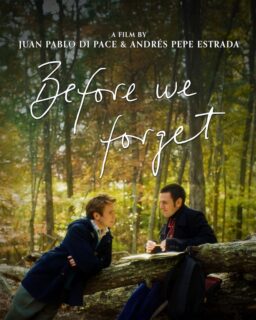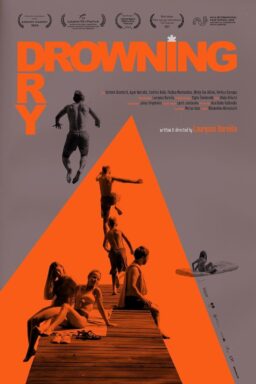It is 2 a.m. in the disco on board the Holland-America cruise ship Ryndam, and Richard Corliss, the film critic of Time magazine, is onstage during the traditional karoke night of the 4th Almost Annual Floating Film Festival. To the tune of “Don’t Be Cruel,” he’s singing his own lyrics, which involve recent developments in the Chinese cinema.
Not everyone can find a rhyme for “Taiwan, China and Hong Kong,” but Corliss can. Then he relinquishes the mike to the karoke emcee, a curly-headed Torontonian named John McDermott.
When the first Floating Film Festival sailed, in 1990, McDermott was a circulation executive with the Toronto Sun. During a session around a ship’s piano bar, he sang “Danny Boy.” A fellow festival goer named Michael Cohl told him, “If you ever decide to go pro, I’ll manage you.” It was no empty promise. Cohl was then gearing up to present a world tour by the Rolling Stones. And by the time the second Floating Film Festival weighed anchor, McDermott had recorded an album of Irish standards that went gold in Canada, Australia, Ireland and New Zealand–where he was voted top male singer, ahead of Frank Sinatra. He quit the day job.
Such stories would seem to have little to do with a film festival, but then the F.F.F. exists in a league, and a world, of its own. The festival was founded by a Toronto and Key Biscayne-based lawyer named Dusty Cohl (Michael’s uncle), who earlier, in 1976, co-founded the Toronto Film Festival. As Toronto grew to its current eminence as one of the world’s three most important festivals, Cohl turned over the reins to full-time festival execs, and announced his retirement, only to grow restless without a film festival to run. Why not, he mused one day, watching cruise ships sail out of Miami, hold a film festival aboard one of them?
Cohl had made a lot of friends among film critics over the years, and enlisted some of them to program his festival. The list has included, at various times, not only Corliss and his wife, Mary, of the Museum of Modern Art, but also Kathleen Carroll, then of the New York Daily News, now on America Online; Sheila Benson, then of the Los Angeles Times, now on the Microsoft Network; Toronto Film Festival directors Piers Handling and Helga Stephenson; the Toronto Globe and Mail’s Jay Scott; CBC executive George Anthony; Canadian broadcaster Brian Linehan, and myself. Former Vancouver filmfest director Hannah Fisher signed on as director.
The format is ideal for sailors like myself, who love ocean liners and hate the sun. The festival sails the Caribbean for eight to 10 days, scheduling two or three films a day, plus, of course, the highly competitive karoke night. There have been tributes over the years to such as actors Rod Steiger, Evelyn Keyes and Lou Jacobi, animator Chuck Jones, director Norman Jewison, and screenwriter and novelist Donald Westlake.
And movies, many of them discoveries. The F.F.F. provided early screenings of “The Silence of the Lambs,” “Howards End,” “One False Move,” “Hoop Dreams” and “Enchanted April.” This year, the emphasis seemed to be on Chinese films, ranging from the Godardian “Chungking Express” to the rambunctious Jackie Chan in “Rumble In The Bronx” (the sizable Canadian contingent on board correctly identified the Bronx “locations” as downtown Vancouver).
“Antonia's Line,” a Dutch Oscar contender, won this year’s most popular film award. “Anne Frank Remembered,” a touching documentary, placed second. There was a tie for third, between Tim Reid’s masterful “Once Upon A Time . . . When We Were Colored” and “Au Petit Marguery,” an enchanting human comedy about closing night at a French restaurant. Other hits included Ted Demme’s coming-of-middle-age comedy “Beautiful Girls,” the hilarious “Mystery Science Theater 3000: The Movie,” and an unsung but powerful Mexican epic, “The Beginning and the End,” by Arturo Ripstein. During a day at sea, the cinematic sailors used a stop-action laserdisc machine to analyze “Pulp Fiction” one shot at a time.
Dusty Cohl and his wife, Joan, are in their element during the cruises, which are held every two years. Joan, quiet and thoughtful, buttonholes critics and filmmakers for intense discussions of their films. Dusty, outgoing and ebullient, waves his cowboy hat to usher stragglers into the screenings. And John McDermott observes, “If it weren’t for the Floating Film Festival, I’d still be delivering papers.”











